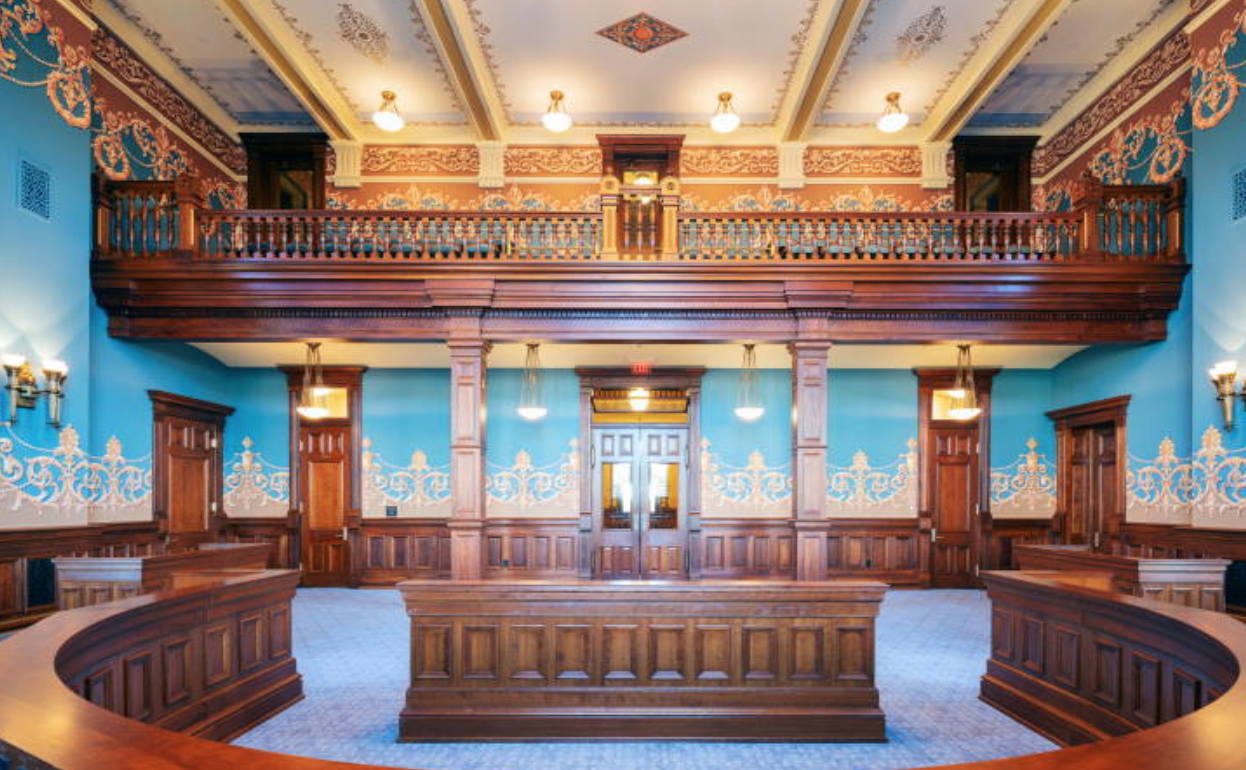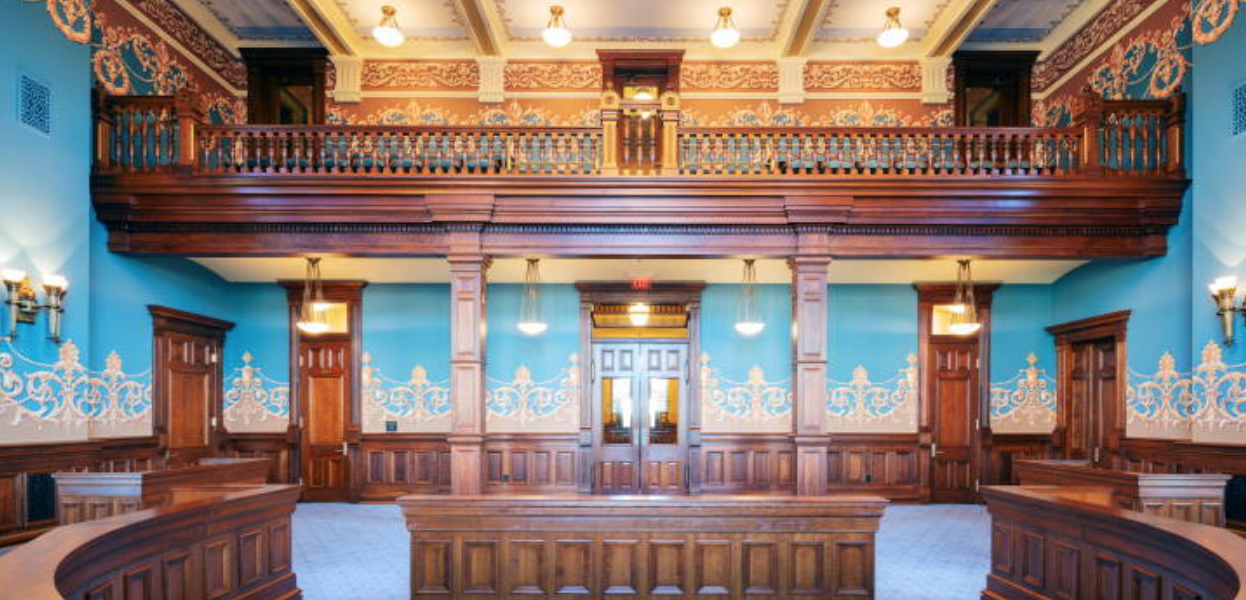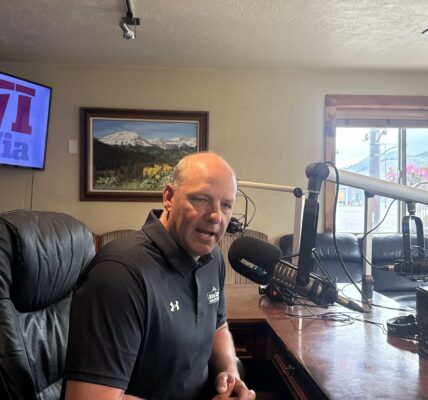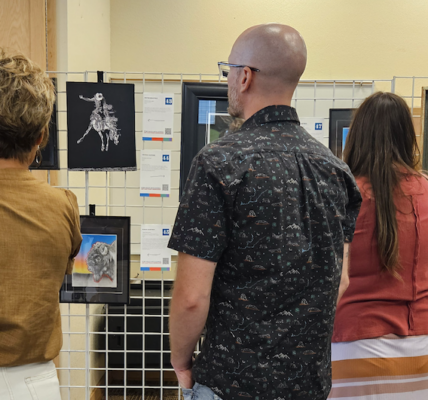
By Jasmine Hall
Wyoming Tribune Eagle
Via- Wyoming News Exchange
CHEYENNE —As Tuesday’s general election rapidly approaches, Rep. Dan Zwonitzer said the Wyoming Legislature can’t afford any more ultraconservative ideologues who don’t understand the complexities of writing law. Yet that possibility exists.
The Cheyenne Republican has served in the state House of Representatives for 17 years, and he said the governing body isn’t what it was a decade ago.
He said there is a lack of congeniality, and the legislative process is filled with anger and vitriol.
Unless members of his party “subscribe to groupthink,” they are outcast and labeled a RINO, or “Republican in Name Only.”
Zwonitzer believes it is a dangerous and scary political philosophy for a party to demand only one way of thinking, which amounts to voting “no” on any compromise or bill outside the party platform.
He said there is a movement of political candidates and lawmakers gaining ground in the Legislature who don’t want any government regulation or taxes, and they only run on extreme social issues.
“Maybe if we just didn’t have a Legislature for the next decade, we’ll see what happens,” he told the Wyoming Tribune Eagle this week.
Zwonitzer said the Legislature can’t function if it’s getting to a point where nearly a third of members don’t want to read or think, and automatically vote “no.”
There is no room for diverse ideological discussions or debate, because lawmakers won’t engage. They also criticize colleagues that vote based on their constituents’ viewpoints, which he said fall along a spectrum.
“That’s the real threat to democracy we’re facing,” he said.
Zwonitzer is a part of the 66th Wyoming Legislature, which is currently made up of 79 Republicans, nine Democrats, one Libertarian and one Independent.
The 67th Legislature will have 93 seats, as one new Senate seat and two House seats resulted from the redistricting process.
Outside of the statehouse, Wyoming was considered the most Republican state in the nation following the 2020 election. That’s based on the 2022 Cook Partisan Voting Index, which shows that 69.9% of Wyoming voters in the most recent presidential election cast their ballot for former President Donald Trump.
That percentage was larger than in any other state, and it followed Wyoming giving the second-highest percentage of votes to Trump during the 2016 presidential election.
The Cowboy State was also considered the second most Republican friendly state in America by the University of Virginia Center for Politics.
Key demographics such as the percentage of the state’s residents 25 and older that have a bachelor’s degree, percentage of state’s residents who are white and how rural the state is are used to determine the ranking.
Republican Senate Majority Floor Leader Ogden Driskill of Devils Tower said it isn’t the Republican Party being in the majority that contributes to a toxic political environment, though.
He said it’s the actions of the far-right groups infiltrating the Legislature.
“They’ve fractured a super majority of the Republican Party that actually could have forwarded an incredible amount of Republican values,” he said. “They’ve chosen to be divisive and split their own party over the ability to actually work together and come up with solutions.”
He said lawmakers like him work with everyone and run for office to benefit the people of Wyoming. He said he will do everything in his power to make the state a better place for his grandkids and great grandkids, but “they’ve made compromise a dirty word.”
Driskill won his Republican primary and was expected to be unopposed in the general election, but he faces a write-in opponent.
He accused his own Crook County Republican Party of going against its bylaws by not supporting him and instead opting to support Roger Connett.
The county party’s chairman, Jeff Burian, is the chair of the “Roger is Right” write-in campaign.
The Sundance Times reported Thursday that the central committee released a statement saying it is unable to support Driskill due to his voting record and for not substantially upholding the Wyoming Republican Party’s platforms.
Driskill told the WTE that it is far from the truth, as he has supported bills to cut property taxes, address critical race theory in schools, protect unborn lives and gun rights, as well as develop voter ID laws.
“Their divisiveness is really going to start hurting in some areas, because good people won’t run because they know that they’re going to have their character assassinated, and their family will be attacked,” he said. “I challenge you to look at my race; you won’t see a single issue brought up in my race. They don’t like me, and that’s not how you run races against people.”
He said always saying “no” doesn’t solve the state’s problems, and what he described as extremists and purists accomplish nothing.
“We’re here to carry out the will of the constituents and the voters. I take it seriously,” he said. “I’ve really tried to do the very best job I can to present the views of the people who elect me.”
Charlie Cook, founder of and contributor to the Cook Political Report, said the loss of political diversity within parties isn’t unique to the GOP. He said it exists more in red states currently, but it occurs in heavily Democratic states, such as New York, as well.
Cook attributes it to the loss of moderating influences, which he said can have a debilitating effect.
“Compromise is the oxygen of democracy,” he told the WTE. “And if people are unwilling to compromise, the process doesn’t work.”
This doesn’t just impact the legislative process. The political analyst said that more moderate voters have stopped voting in the primaries, and it leads to more conservative and extreme candidates within the Republican Party.
Losing the centrists in the Republican Party also is the result of an arrogance that comes with one-party rule, because he said they are not policing their own and discouraging radical voices.
He reiterated this is not exclusive to Republicans, and any party can suffer from extremism, but he voiced his concern for the longevity of the democratic process in the wake of this kind of political atmosphere.
“In social science, the term ‘group polarization’ describes the phenomenon in which, as like-minded people begin to discuss a subject, their views tend to become more extreme in that direction,” Cook wrote in an article on the loss of political diversity. “The increasingly monolithic ideological nature of each of our two major parties, exacerbated by cable news, talk radio, the internet and social media, has a way of building an intensity far greater than was commonly seen 30 or 40 years ago.”
David Pepper, author of “Laboratories of Autocracy,” weighed in on the trend he’s seen in state capitols across the nation.
He said legislatures have an enormous amount of power that most residents in their own states don’t appreciate, and it has led to a downward spiral as rightwing political candidates take office.
“The state houses have become the frontline in the attack on democracy and the advance of extremism,” he said.
He said far-right groups have a better chance at pushing their agenda at the state level than they are in Washington D.C., which contributes to “cookie-cutter bills that are dreamed up in some conference somewhere, and handed to these legislators to then pass back in the statehouses.”
He said these are often social issue bills, such as attacks on LGBTQ+, abortion or voter rights, as well corporations having a stronger influence on such things as energy and broadband issues.
He said in politics, there has to be an incentive to be reasonable, and when there is only one party in power, it can lead to extremist behavior.
He believes this has been more prevalent as the number of majority Republican legislatures has increased, as well as a lack of pushback from moderates.
Although Pepper said there will likely be a self-correction, he said action has to be taken when it comes to elections.
“It’s really unhealthy when people get re-elected, because there’s no opposition. You have to run. That brings transparency, that brings accountability, that raises the issues that people care about,” he said. “It’s on the everyday citizen to pay attention, but it’s on people in politics to stop allowing people to just get basically reappointed every two years without even facing election, because that’s contributing to the problem.”
Zwonitzer said Wyoming historically has been a center-right state, and continues to support a limited government ideology.
He believes residents want a robust political process that features ideas from all segments of the political spectrum, and this doesn’t come out of a certain number of Republicans, Democrats or third-party candidates taking office or having a one-party state. He said there is an issue when an ideological orthodoxy for one way of approaching an issue is enforced, and not everyone is allowed to speak his or her mind and be treated with respect.
Republicans who have previously told the Wyoming Tribune Eagle they disagreed with compromise or saw a need for candidates to adhere strictly to the Wyoming Republican Party’s platforms didn’t respond to requests for comment for this story.
Wyoming GOP leaders, as well as members of the Republican State Leadership Committee, also didn’t comment.
However, other candidates in the state shared their opinions about whether a conservative or Democratic majority was necessary for the Wyoming Legislature moving forward.
“Laramie County has a pretty good mixed diversification of voters. I don’t think it needs to be red, and I don’t think it needs to be blue. Certainly, being red, in my opinion, is better,” Rep. Landon Brown, R-Cheyenne, said. “But I also think having dissenting opinions is always a good thing. I think we should always have people that are willing to dissent against the majority view, and those voices need to be heard in the legislature.”
Brown is running for re-election in House District 9 and has faced criticism from fellow Republicans for not being far-right enough.
He said even in the case of Teton County, voters are not doing themselves any favor by only electing Democrats, the same way that he doesn’t believe Laramie County benefits from only re-electing Republicans.
He said a healthy mix is what creates good policy.
Jen Solis, a Democratic candidate in House District 41, shared a similar perspective.
She said it is critical to have political discourse, and to move away from litmus or purity tests, even as a liberal contender.
“Conservatives make me a better Democrat. I think liberals make Republicans better Republicans,” she said. “It’s that debate – the work is accomplished in the push and pull.”
She said there is an overwhelming number of Republicans in power in the state, and the dissent isn’t happening between the left or the right, leading to work happening at the center.
She said it’s a pull toward the extreme right, and it has silenced traditional, moderate Republicans.
“They don’t want to be attacked,” she said. “And it doesn’t do anybody any good because we’re losing ourselves in it. We’re losing our values. We’re descending into cruelty.”





